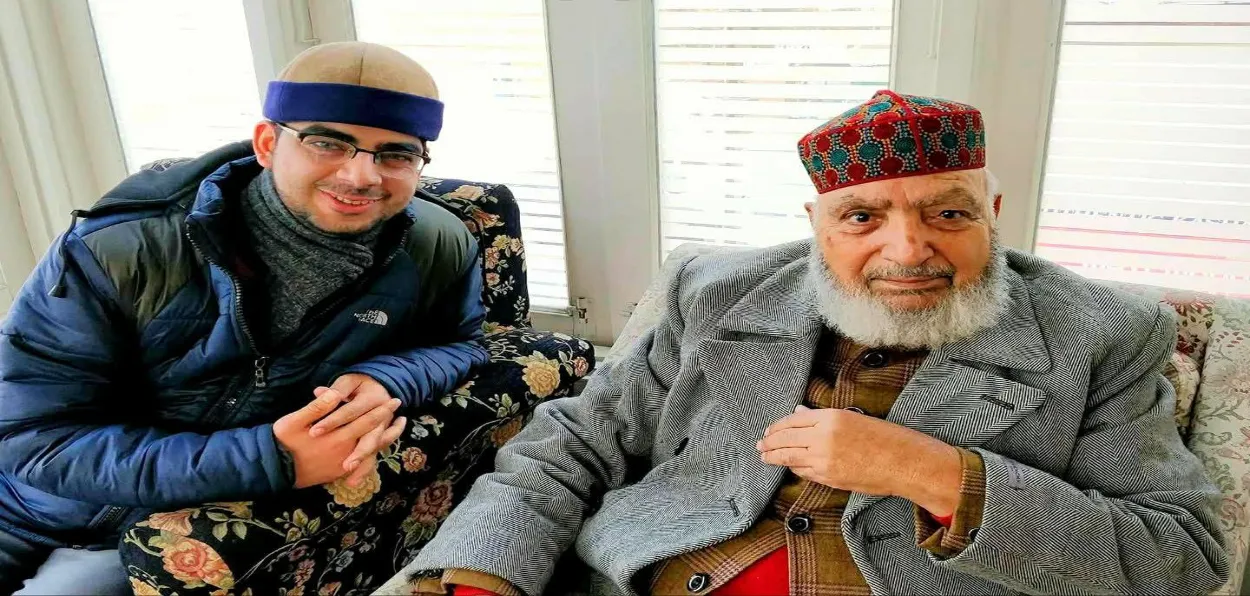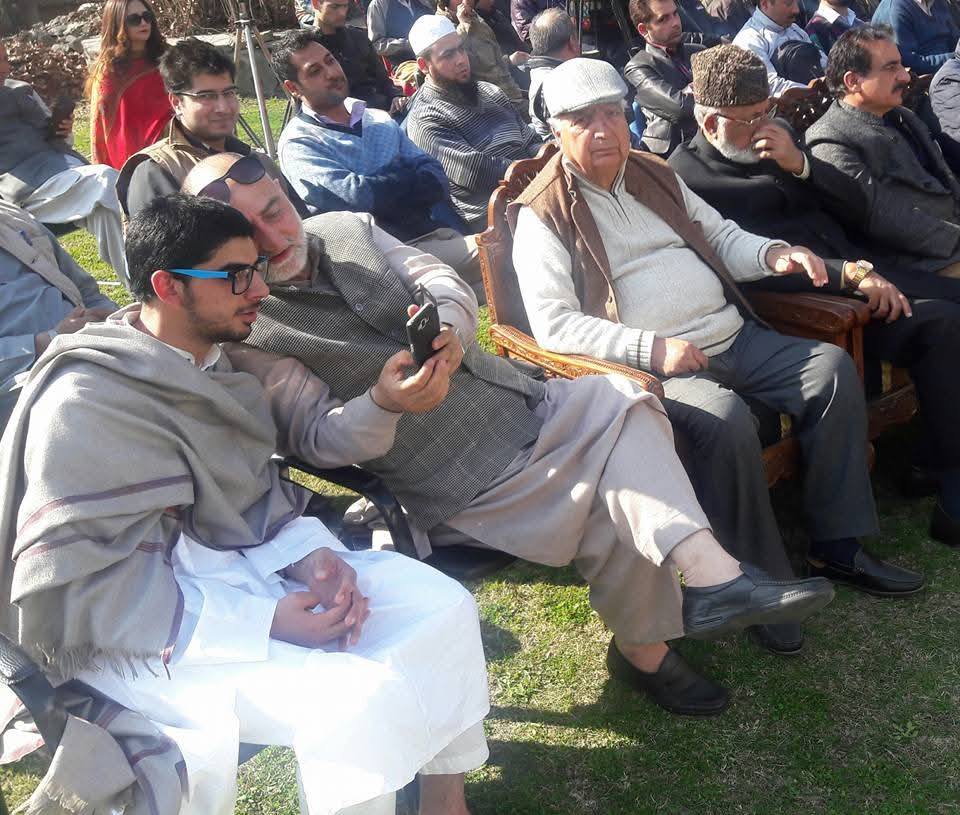
Farooq Nazki, Kashmiri poet, writer, drama artist, broadcaster and the Sahitya Academy award winner passed away on February 6, 2024. The Kashmir-based writer pays tribute to him in a critique of his poetry
Amir Suhail Wani
Poets depict life through words. Life, as such, is a delicate combination of contrasting forces - tranquillity and stability; positive and negative; pain and ecstasy, etc. Philosophers deal with this division and analysis and often get entangled in this process that, as Emperor Akbar said, "He’s untangling the thread, yet the end never meets."
A philosopher often becomes so confined within a specific and limited framework of life that he commits the intellectual error of presenting a "finite part" as the "extended whole." However, a poet does not follow this path. A poet breathes life into the monotony and dryness of life by adding colour and moisture. Rather than analyzing life, a poet aims for a creative integration. A sensitive poet looks at life from a close-up and distance. He not only feels the flow of life as he immerses himself in it but also steps back to observe the whole system with a bird's-eye view. He speaks of both stillness and movement.
To enter the poetic universe of Farooq Nazki, a Kashmir-born poet, broadcaster, and artist, one must keep these ideas in mind. In today’s literary terminology, it is challenging to understand a poet solely as a poet. Thus, poets are often burdened with titles like "poet of revolution," "poet of the nation," etc. However, I do not wish to limit Nazki or his poetry by attaching labels.
If someone insists on attaching a label, I would, in an exaggerated sense, say that Farooq Nazki is a poet of humanity, society, and the universe—everything, because he is a poet who transcends all existential boundaries. If metaphors can be used without distortion, it would be fitting to say that Farooq Nazki wearing the classical ghazal crown on his head is steadily following the path of progressive poetry. In his poetry, where classical traditions consider human life as an indivisible entity, he also addresses the political, social, religious, and economic issues facing humanity from a progressive perspective.
This becomes evident through a comparative study of his ghazals and poems. He analyses the nuances of life through his artistic microscope and, as a visionary individual, brings the vast canvas of life into focus. He is not only an observer of life but paints its highs and lows. For him, the question of how life should be does not hold as much importance as experiencing life as it is and capturing the emotions it evokes. However, it would be unfair to call him just a poet of emotions. While showing others what he has seen, he subtly embeds his thoughts and opinions between the lines.

Farooq Nazki (Third from left) at a poetic symposium in Srinagar
Shams-ur-Rehman Farooqi says, "The external world is reflected in his poetry, but not directly." The success of a great poet lies in not presenting his thoughts clearly so that poetry turns into commentary or becomes flat; the poet’s greatness is not only in discovering silence amidst chaos but also in rediscovering meaning in silence.
As Nazki says:
He understands the language of my body,
Whose silence is the perfection of beauty.
While every thinker must rise above their regional boundaries to view things in a universal context, it is also impossible for a sensitive poet to be completely oblivious to their surroundings. A poet living in a desert doesn't speak of a garden. In this case, the poet becomes a mere juggler of words, no longer a poet. Dante once said that a painter cannot paint unless he is immersed in the concept of the image. The poet needs to live the words he speaks before he speaks them and then interpret them. However, the poet’s brilliance lies in presenting personal experiences, influenced by local conditions, in universal symbols, all-encompassing metaphors, and transcendental forms. The essence of poetry is to transcend these aspects, and it is this transcendence that allows a poet to present something beyond the time and place he belongs to.
When we study Farooq Nazki’s poetry, we can see that he is not a poet of any particular place or time. His poetry carries the influence of his homeland in the right amount. He is so enamoured of transcendence that he has no manifesto, agenda, or ideological goal. He analyzes politics not to spark revolutions or give impetus to a movement. He does so because as a human being, he is deeply concerned with these issues. When he speaks of God and religion (sometimes), he does so not as a theologian or philosopher but as a human who faces life's struggles in waiting for a better tomorrow.
It is often said that poets are "poets of tomorrow," but this is unjust. Before being a poet of tomorrow, a poet must first be a poet of today and the present. I do not mean that a poet should remain confined to a single era, ignoring the future and past. However, to call a poet a "poet of tomorrow" based solely on his predictions would be an exaggeration of his poetic abilities. Like a meteorologist, a poet does not predict the future based on mathematical laws, but he sketches a creative outline of the future, with all its details. Farooq Nazki does just this—he doesn't paint a static, final picture of the future but presents a blurry creative sketch, within which multiple interpretations can emerge. He doesn’t treat any interpretation of this sketch as final or unchangeable.
One of the most striking features of Farooq Nazki's art is his ability to present the most complex themes in a simple and approachable style. He does not revel in obscurity but conveys meanings in a way that captivates the reader. He is detailed and profound in his analysis, but his expression is clear, and devoid of unnecessary literary complexities. A few lines from his poetry:
In the season of embers,
There’s a fair of bodies,
In my village,
The mad river rests.
In his poetry, there is a predominant sense of pain and anguish which is not superficial pain. It’s a deeper reflection of human suffering. The poet is not simply reflecting on a collective crisis but is also deeply involved in individual and personal anguish. His pain is felt personally but, when expressed, it becomes a collective declaration. The poet’s ability to transcend individual suffering and turn it into a shared experience gives his poetry a profound resonance.
ALSO READ: Nuruddin wins accolades for designing Science Fair of Assam Sahitya Sabha
Farooq Nazki’s poetry reflects the struggle, pain, and hope of a people caught between past and present, personal and collective loss, yet striving for a better tomorrow.
